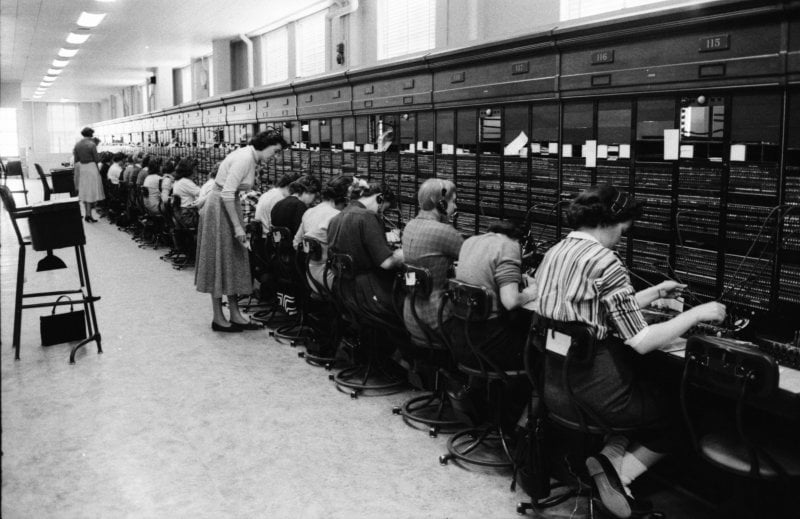Cairo's Soccer Data Farms, Zoom Cashiers, and Holes in the Job Market

After a brief health scare, mom is home from the hospital. The Sounders got their first win of the season (although they drew away at Dallas this morning) and Cody finished his story.
It was a good week.
In the last newsletter, we talked about the ways people in the US and elsewhere in the wealthy world are tethered to the people in the global south. We also talked about how we, again in the wealthy world, serve as drivers of the policies that stagnate development in economically developing states.
The replies were insightful. You all made connections I missed and talked about things I'd thought about but viewed as tangential. I want to share and rip on a pair of those today.
You may recall, I mentioned the news about AmazonFresh and the revelation that “Just Walk Out” cashierless stores were really driven by remote workers in India reviewing camera footage of shoppers. Not to be outdone, 404 reported this week, on a chicken shop in New York City that replaced their cashier with an iPad, where a woman in the Philippines rings you up via Zoom:
The iPad that would normally serve as a payment terminal reads “WELCOME TO MY STORE” in Comic Sans. When the cashier leaves to take a break, she switches her background to say “The cashier will be back :).”
On a piece of paper, taped to the cash register and facing customers, is the handwritten Zoom meeting ID and password, presumably so a human employee at the restaurant can dial in the remote worker.
I wish I was making this stuff up but there are more examples.
P, a reader from Seattle, shared a story from the world of football analytics. Below he describes a service called Stats Bomb. They do soccer analytics and claim to record 3,400 unique events per match. Here’s P:
Their schtick is that they have an AI that watches the video feeds… but they also have a team of dudes in Cairo that literally do nothing but watch soccer all day and input the actions and moves.
First off, dream job.
Secondly, like Amazon, the AI magic is actually people overseas. It reminds me of a post I saw on Mastodon this week. Someone joked “AI” actually stands for “All Indians.” As in all the purported “magic” of AI is people in and from South Asia doing the work.
P went on to write about how although current AI is often smoke & mirrors, down the road, much improved AI is coming for more of us:
I don't know what's going to happen to the world when the AIs replace another 10-20% of the workforce in "thinking" jobs that right now make bigger bucks. All us “developed world people” are going to find out more and more what it's like to be exploited.
In a recent interview Ezra Klein said, “the AI we have, is the worst AI will ever be.”
This coming mess is a topic I've tried to explore (with limited success) both on the podcast and in the newsletter. It’s a conversation I want to continue having. Even with their current faults, AI and machine learning are eventually coming for many of our jobs and I really don't think we've collectively grappled with how that will up-end society.

Think about telephone operators. In 1970, there were over 400,000 of them working in the US. Today, there are fewer than 4,700 according to the Bureau of Labor Statistics. At some point in the not too distant future, everyone who drives for a living: truckers, UPS drivers, all the gig workers (Uber, Lyft, and DoorDash) will get cooked by driverless technology. They're going to be extremely angry. I believe the fallout and how we deal with this will be the defining issue in American politics for decades.
Shifting a bit, a reader named C noted that the outsourcing revealed at AmazonFresh is just the tip of the iceberg and is also demonstrative of larger mismatches in the labor market:
The whole off-shoring has benefited Wall-Street tremendously…. However, it's made the U.S. extremely fragile. High labor costs, High energy costs, no manufacturing base.
At other points in my life, the line about the “loss of the domestic manufacturing base” would have drawn a shrug from me. But given recent trends it hits different.
If I’m keeping it buck, I really can’t make sense of the US labor market. On one hand, I read about the decades-long slow death of American manufacturing. On the other hand, I feel like every week I see a headline about a shortage in some critical sector:
Legitimately, part of this is the pandemic—we lost a million people in the US. But I still can’t square it.
How can we have such a massive mismatch of roles to be filled and people to fill them?
If we have all these vacancies, why can’t we build alternative pathways or change the ways we recruit workers into these fields?
I really don’t get it and why there’s seemingly no urgency around it.
I want to close by thanking all of you for subscribing to the newsletter. On Wednesday, I met a long-time reader in Manila before Hope and I departed the country. Hi, S.G! I joke about the internet being terrible all the time but I never want to take the connectivity and global community it provides us for granted.
Have a good week, y'all.